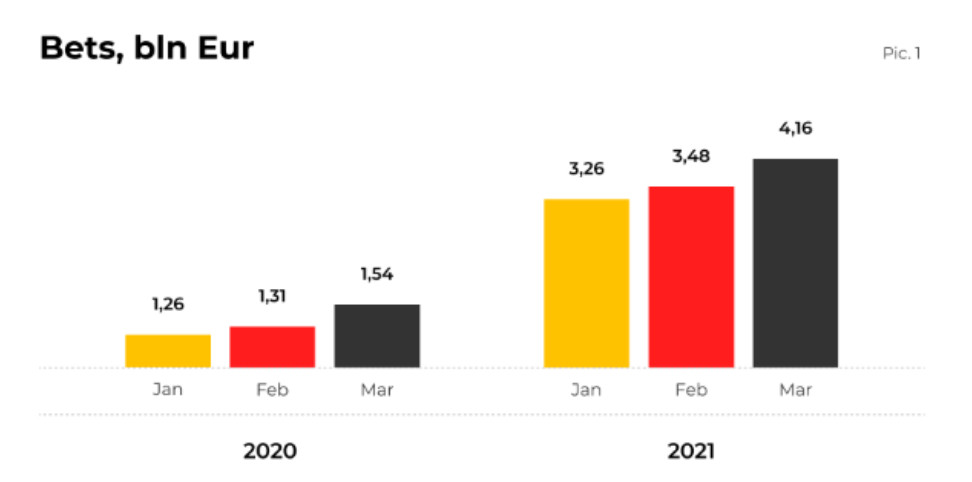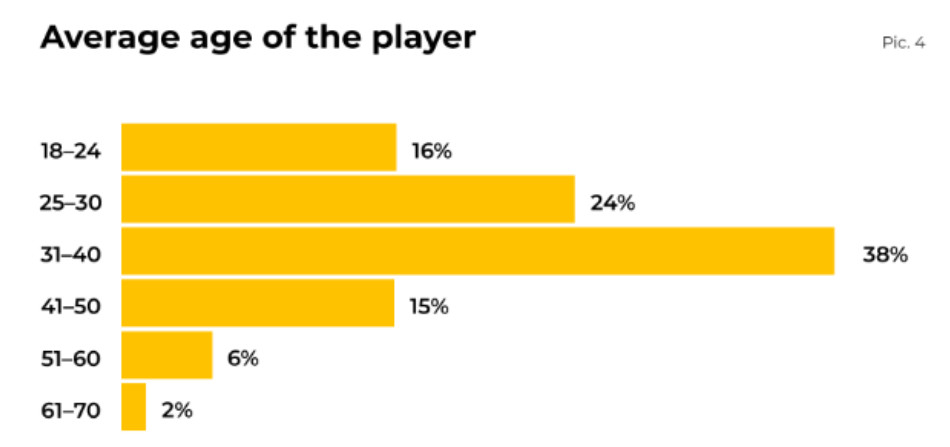The SoftSwiss Game Aggregator has recorded a ‘near threefold increase’ in gross gaming revenue for Q1 2021, demonstrating the steady growth of the online gaming market.
When compared to the same period in 2020, SoftSwiss noted that total bets placed through its Game Aggregator rose from €4.11bn to €10.97bn – with the number of bets placed in March 2021 exceeding the total number of bets during Q1 2020.
This 167 per cent increase, SoftSwiss says, can be attributed to the brand’s expansion alongside the ‘strengthened lockdown measures and players going fully digital’.

Growth in the number of bets was complemented by a 165 per cent increase in GGR, which rose from €162.52m in Q1 2020 to €430.04m.
While the vast majority of bets were placed using euros, SoftSwiss explained that the volume of bitcoin transactions grew by 100 per cent ‘despite the fact that bitcoin lost its position within the top three currencies’.
Breaking down player demographics, the majority of players (72 per cent) identified as male with the average player age listed as 34 years old.

The solutions provider revealed that use of its game aggregator had increased across all territories, with growth rates across the CIS region ‘not as high as those across the rest of the world’.
SoftSwiss said: “The CIS region is generally a very large market for the SoftSwiss Game Aggregator, however, it faced certain difficulties with the operation of payment methods in Q1 2021. Hence the volume of bets ended up decreasing slightly, with the overall market share experiencing a significant drop from 22 per cent in Q4 2020 to 15 per cent in Q1 2021.
“Nonetheless, traffic volumes throughout the CIS region are growing, with the leading territories being Russia, Ukraine, Kazakhstan and Azerbaijan.”
Six of the top 10 most played games were live games, while the remaining four consisted of slot games including Fruit Party by Pragmatic Play and Book of Dead by Play’n GO.
The SoftSwiss report highlighted that 66 per cent of players were choosing to gamble via smartphones, compared to 29 per cent opting for desktops and five per cent playing via tablets.











